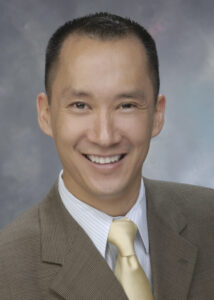Dr Patrick Yeung Jr, M.D.
Dr Patrick Yeung – Endometriosis Specialist, Minimally Invasive Gynecologic Surgeon
Summary: Dr Patrick Yeung is a renowned endometriosis specialist and minimally invasive gynecologic surgeon based in St. Louis. Known for his deep commitment to individualized care, Dr Patrick Yeung takes a comprehensive and evidence-based approach to treating endometriosis. Patients seeking answers about complex pelvic pain or surgery often find lasting relief through his expertise. Whether you’re researching Dr Patrick Yeung St Louis, exploring options for Patrick Young endometriosis treatment, or looking for the right specialist, Dr Yeung offers trusted, compassionate care.
With a philosophy rooted in achieving optimal excision over hormonal suppression, Dr Yeung believes real healing begins by treating the disease at its core—not just its symptoms. As a thought leader challenging outdated theories like retrograde menstruation, Dr Patrick Yeung focuses on precision surgery and comprehensive post-op support. Patients nationwide turn to Dr Patrick Yeung St Louis for relief from persistent endometriosis pain and personalized, long-term care.
City: St. Louis, MO, USA
Philosophy: Metaplasia or maybe stem cells. I agree with Dr. Redwine that the retrograde menstruation theory is probably one of the most problematic areas in our understanding of endometriosis and leads people to make statements or hold ideas that just biologically are not true (like hysterectomy or inducing amenorrhea will somehow treat endometriosis).
Medication: I rarely, if ever, use or recommend hormonal suppression, which at best is symptomatic relief; I think that hormonal suppression does nothing to the actual disease (it certainly does not dissolve it or get rid of it), has not been shown or proven to prevent progression, does NOT help (later) fertility, and can have serious side effects.
I do NOT recommend postoperative hormonal suppression to prevent progression or recurrence if I think that optimal excision has been achieved. So I am committed to achieving optimal excision at the time of surgery.
Approach to Persistent Pain: If a patient has had optimal excision, then endometriosis as a source of pain should be at the bottom of the list of potential symptoms, though not off the list. Other sources of pain should be investigated first before revisiting the issue of endometriosis-associated pain or at least in thinking that another surgery would be helpful. The uterus itself could also be a source of pain.
Since incorporating a more global or comprehensive approach to pain, our rate of repeat surgery for endometriosis has gone from 40% to 6%.
If surgery is to be repeated, I like to try to do something different than what was done the first time, in the hopes of a different outcome.

